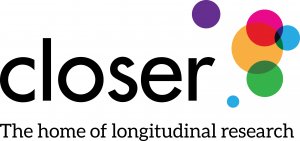
Contributing to the understanding of lifecourse influences on health in later life
Frequently Asked Questions
How is my personal data processed?
With your previous consent, we have received data from NHS Digital to allow us to link your participation in previous clinic visits and questionnaires with any admissions to hospital. This allows us to conduct important research into risk factors for hospital admission in a very cost-effective and rigorous way without placing an extra burden on you or your family doctor. To do this, we have shared a unique identifier linked to you with NHS Digital who have securely passed us personal information relating to your hospital admissions such as admission and discharge dates and medical operations performed. Staff here at the MRC Lifecourse Epidemiology Centre, who have been processing these data and undertaking analysis, have then considered these health outcomes for research purposes. All work is conducted only by trained and accredited staff who have signed confidentiality agreements ensuring best practice. The processing of these data is lawful and in accordance with the General Data Protection Regulation (GDPR). These data will be held until 17/11/2024.
If you have concerns regarding this, please contact us, but you should also be aware that you have the legal right to opt out of this process and to lodge a complaint with the Information Commissioner’s Office (ICO).
How is information about me stored and used?
All organisations in the UK are bound by the terms of the Data Protection Act 1998 and by the EU’s General Data Protection Regulations. These laws require us to be transparent about how we use your data and to handle information about you only in ways you could reasonably expect. We would like to assure you that:
- All the information we hold about you is confidential.
- Data about your health are stored separately from details of your identity. A unique serial number is used to link the two.
- Although we sometimes share data with other carefully vetted researchers, we never tell them anything that would enable them to identify you.
- In some cases (see below), we might be required to share details of your identity with NHS Digital, in order to obtain additional information about you.
Day-to-day responsibility for data protection rests with the Vanessa Cox, our Computer Manager and Data Protection Officer, who should be the first point of contact for any queries:
Ms Vanessa Cox
MRC Lifecourse Epidemiology Centre
University of Southampton
Southampton General Hospital
Southampton SO16 6YD
Telephone 023 8077 7624
Any problem that cannot be resolved in consultation with Vanessa should be referred to the Data Controller, or in the last resort, lodge a complaint with the Information Commissioner’s Office; telephone 0303 123 1113).
What statutory arrangements are in place to allow you to process my data?
The organisation acting as Data Controller for the study is the University of Southampton, of which the MRC Lifecourse Epidemiology Centre (LEC) is a constituent part. (Contact: Director of Legal Services, University of Southampton, Highfield, Southampton, SO171BJ; telephone 023 8059 2400).
The legally stated purpose for data processing is to investigate influences on chronic non-communicable diseases of ageing that act across the lifecourse, some of which begin in utero. The legally stated basis for processing is ‘the performance of a task carried out in the public interest’. Our Privacy Policy can be accessed using the link below.
No formal data retention period is specified. Because mortality is one of the outcomes of interest, it is expected that data will be retained until after the death of the last cohort member.
Where do the data come from?
Mostly from you! Computer Manager Vanessa Cox and her team of programmers and data processors computerise all the information you give us and store it securely.
If you belong to the 1920’s or 1930’s Cohorts, information about your early childhood has been taken from Health Visitors’ Records that are held by this unit. We also access routinely collected data such as death certificates and, for members of the 1930’s Cohort who came to one of our clinics, Hospital Episode Statistics. These records were obtained from NHS Digital using your NHS number to identify you.
May I have a copy of my birth records?
If you are a member of our 1920’s or 1930’s Birth Cohort we can provide you with a copy of your birth records. We are not able to photocopy the original records because they are large, unwieldy and increasingly fragile. However, we can supply you with a computerised copy if you contact us at the address below, or use the contact page of this website, and tell us your name, date and place of birth, and ladies, your maiden name too please.
How did you find me?
Members of the 1920’s and 30’s cohorts were identified by sending identifying information from the birth registers to the National Health Service Central Register. They were able to tell us which Health Authority you were registered with and your NHS number. We then contacted the Health Authority to find out who your GP was, and we asked him or her whether we may contact you. If yes, your GP gave us your address.
If you have recently been invited to take part in our intergenerational study (HCS3G) we are contacting you via your parent or grandparent, who is a member of the 1930’s cohort. We will only be able to contact you further if you agree to take part in the study and provide us with your contact details.
What checks are built into the system?
All of our proposed research is vetted by an Independent Ethics Committee to protect you.
An International Scientific Advisory Committee oversees all of our projects and every 5 years we are rigorously reviewed before our MRC funding is renewed.
Our research is conducted at the public expense and is not for commercial gain.
Can I change my mind about taking part?
Of course! Taking part in the Hertfordshire Cohort Study is voluntary and you are free to withdraw without giving a reason. If you wish to withdraw, please contact us at the address below or using the contact page on this website.
For Researchers
How can other researchers find out about HCS data?

The Hertfordshire Cohort Study is part of CLOSER. CLOSER, the home of longitudinal research, brings together world-leading longitudinal studies to maximise their use, value and impact and improve our understanding of key social and biomedical challenges.
You can search and browse questionnaires and data from our study using the CLOSER Discovery search engine. CLOSER Discovery is an online platform that allows users to explore the content of multiple UK longitudinal studies. CLOSER Discovery is regularly updated to include more content from each longitudinal study. The full list of study questionnaires and datasets currently available in CLOSER Discovery, as well as the instruments that will be added at a later date, can be found on the website.
You can also consult our open-access overview of the study.
Access to HCS data is strictly controlled by the steering committee; enquiries may be submitted using the contact tab above.
